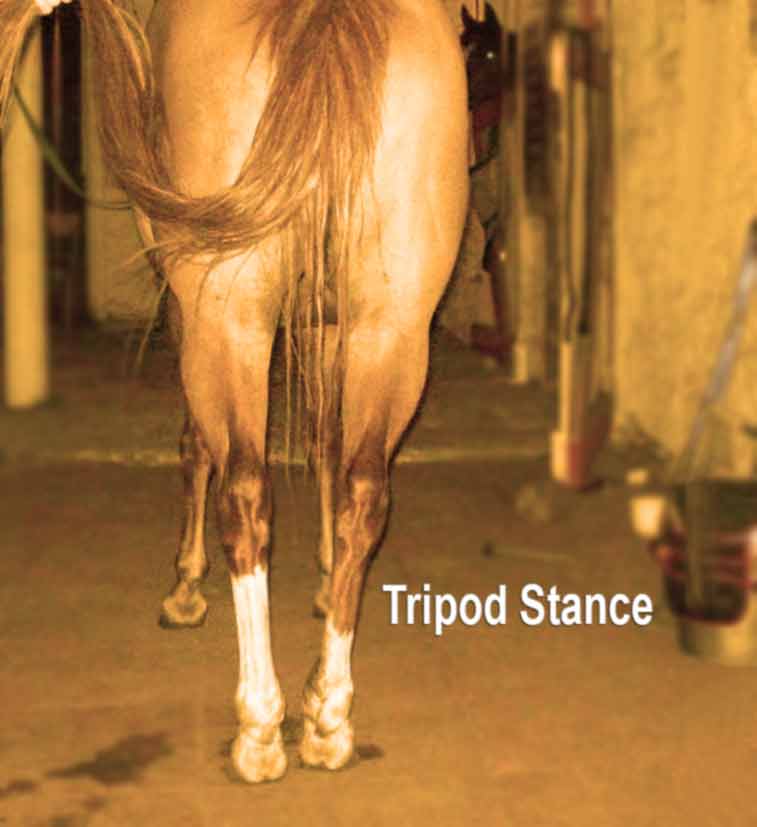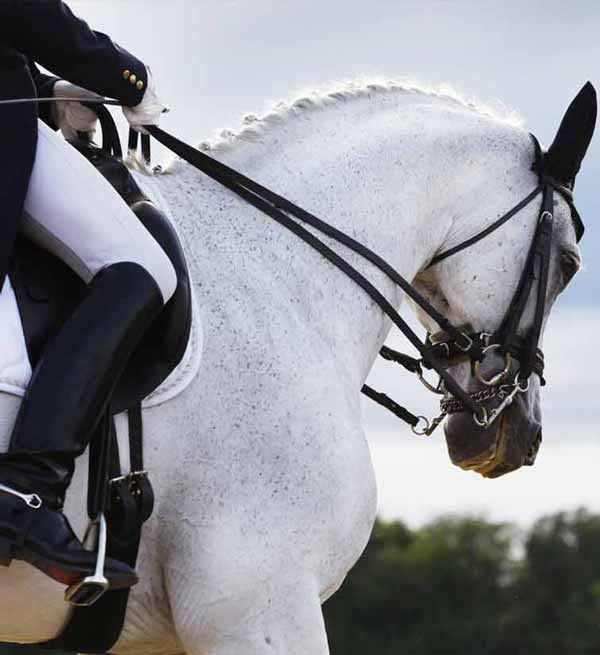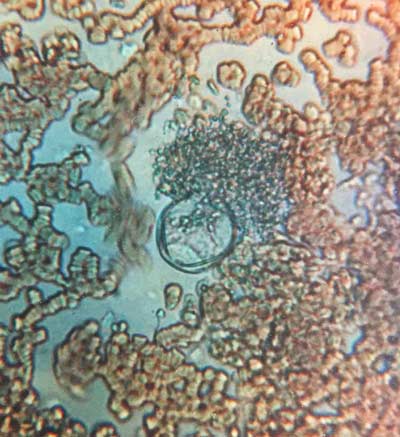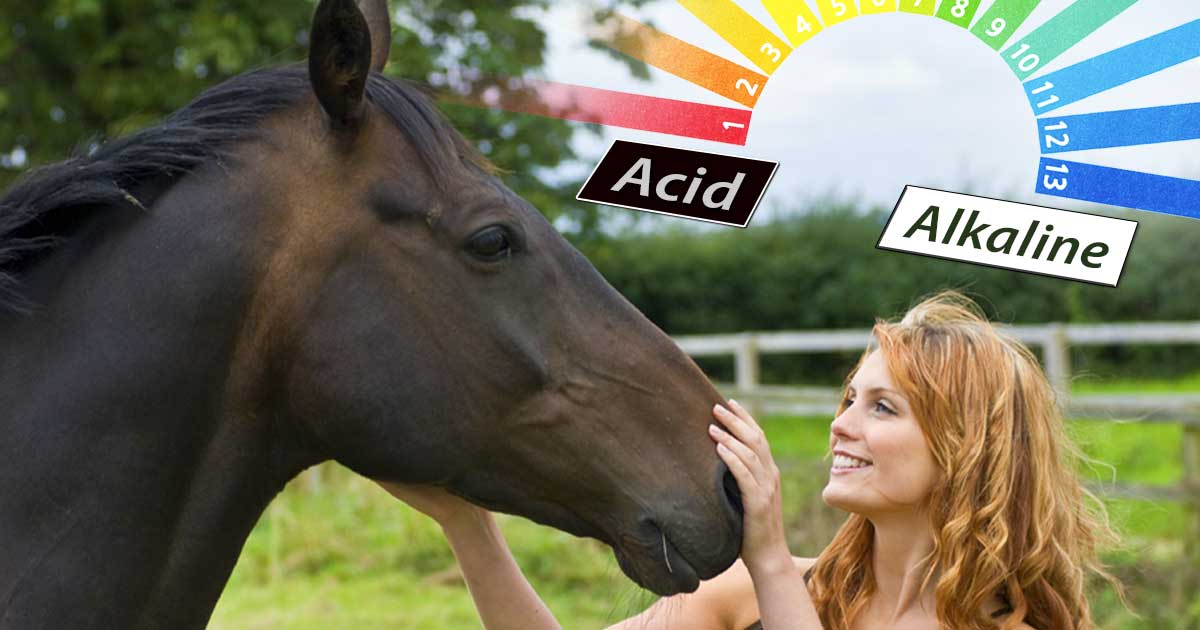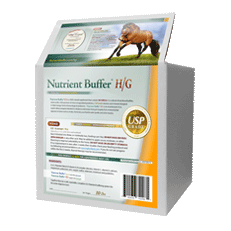Healing Lower Gastric Ulcers in Horses

Try to approach hind gut ulcers by addressing the underlaying cause of the excess acidity and intestinal microbial imbalance.
Similar conditions can happen in humans; they compromise digestion and cause malnutrition by making the lower gut inhospitable to healthy and diverse probiotics which facilitate proper digestion and support of the immune system in many ways. We now know that 90% of the immune system is in the gut, for animals as well as humans. Dietary imbalance, as well as chronic and acute chemical toxicities (such as RoundUp® or glyphosate), or other types of trauma can kill the good bacteria that are required for healthy digestion. Neutralizing excess acidity is the first step to helping the hind gut heal, so that the cells lining the hind gut can begin absorbing nutrition again, and good probiotics can continue to release optimal nutrients from fecal matter.
NOTE: Supplementing probiotics, alone, is almost completely ineffective if the pH of the intestinal tract is not suitable for them to live - the environment can simply kill them on contact.
Often, affected horses are on a low protein diet, and it hinders healing throughout the body. Protein is the most important element in the diet, as 90% of the dry weight of any mammal is protein. Protein is also the most expensive element in the diet, so it ends up being the one element which is most often skimped on in commercial feeds - or they will use a more indigestible source of protein that is not very compatible with a horse’s digestive system, and work better for other animals, like cows. Soybean hulls are a common example. It is also really important to use a non-legume source for protein as well, because of the thyroid compromising effects of legumes (like alfalfa and soy) on thyroid.
Heavy metals and pesticides in water sources are also known to cause unhealthy pH in the gut — usually in the acidic direction. Cleaner, purified or filtered water can be a key factor for horses recovering from hind gut ulcers. All biochemical reactions that occur in the living body are in a water soluble form. If there are significant amounts of inorganic minerals, chemical toxins or dirt, then water has restricted capacity to carry nutrients into cells and allow for waste products to be excreted. Often, wells with polluted water are deemed fit for animals but not humans, even for the animals that we eat in our food supply. This is a true tragedy. especially for animals like horses, who can live into old age - much longer than the puberty of slaughter animals. Polluted water takes a huge toll on performance horses, our equine athletes. Get a water filtration system and make sure you change the filters regularly.
When Nutrient Buffer® H/G is used with a high protein feed like Equine Plus®, it can more easily correct the pH of the hind gut and help prevent common inflammatory immune responses to environmental toxins, trauma or other stressful conditions.
